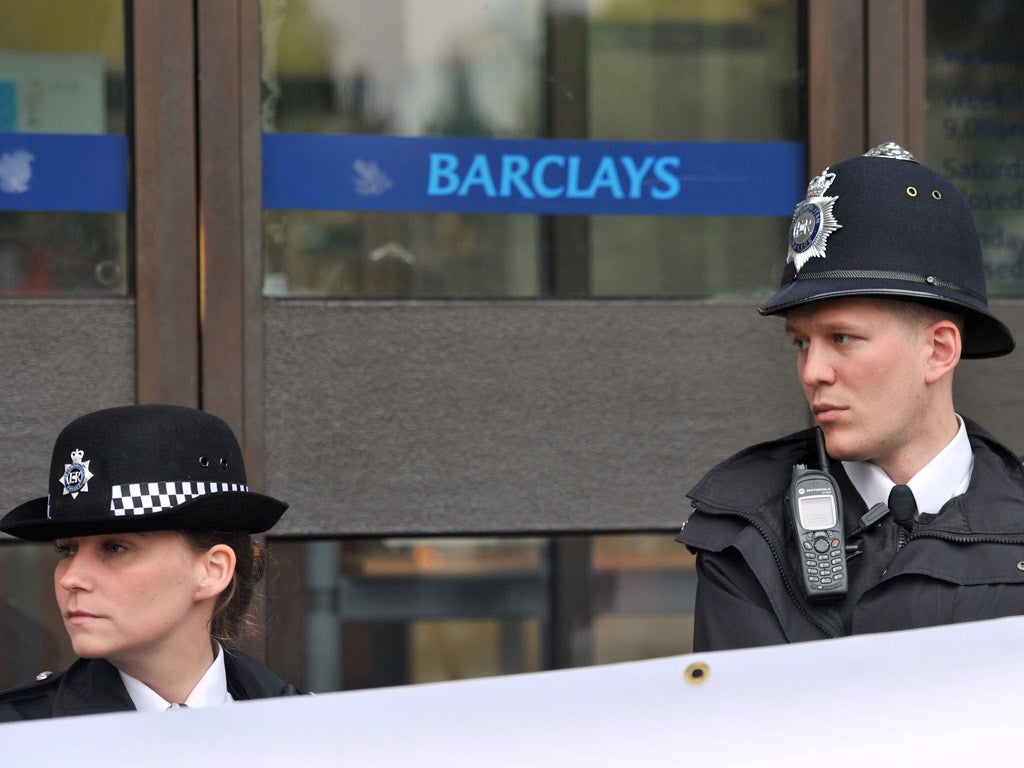Bank crisis is hitting corporate bond funds
The relative safety of company-issued bonds is being upset by the banks' Libor scandal

Investors who have fled from fluctuating stock markets into "safer" corporate bonds, may see their savings shrink as bank-heavy bond funds take huge hits from the current banking disasters.
The corporate bond sector has become popular with investors in recent times. In fact, it was the best-selling sector in April, according to statistics published by the Investment Management Association.
But analysis shows that despite the average corporate bond fund climbing 5.02 per cent in the six months until the end of May, those funds with high bank bond exposures lost money over the month.
The Invesco Perpetual Corporate Bond, for instance, is just over 38 per cent invested in bank bonds. But while it climbed 6.58 per cent in six months, it fell 1.08 per cent over the month.
By comparison the Ignis Corporate Bond is just 17 per cent invested in bank bonds. Its performance over six months is slightly below that of the Invesco fund at 6.36 per cent. But over the month it climbed 3.1 per cent, as it took much less of a hit from the continuing bank woes.
"I believe investors are taking hidden risks due to the large exposure of some popular bonds issued by banks," warned Brian Dennehy, the managing director of FundExpert.co.uk. "Investors in the huge £5.4bn Invesco Perpetual Corporate Bond fund appear particularly exposed."
He fears that the latest scandal will cause more grief for investors. "Now we have problems with Barclays, and probably much of the banking sector, with the Libor fixing scandal, my view is that it will be some time before banks' bonds recover."
Mr Dennehy warned that "the background is murky for bank bonds, to say the least".
He added that the reforms aimed at solving the eurozone debt crisis could leave bank bondholders relatively exposed, especially as the banking system across Europe, particularly in Spain, is under increasing strain. He also pointed out that as a result of the European Central Bank's plan to bolster the region's banks, known as the long-term refinancing operation, banks have swapped capital for risky sovereign debt.
"For these reasons, and the general fragility of the eurozone, a banking crisis is never far away. And one big lesson from the 2008 crisis is that localised banking problems quickly become nasty global banking crises."
He advises investors seeking safety to avoid corporate bond funds with large exposures to bank bonds. As well as the Invesco Perpetual fund, he highlighted the Rathbone Ethical Bond, which is 38 per cent invested in bank bonds and fell 2.09 per cent in May.
Meanwhile, the £3.3bn Scottish Widows Corporate Bond, which is 24 per cent invested in bank bonds, typical of the average corporate bond fund according to Mr Dennehy, climbed a disappointing 0.78 per cent over the month, although it was up 5.29 per cent over six months.
"If you are seeking safety, invest in investment grade bond funds such as M&G Corporate Bond and the Fidelity Moneybuilder Income," Mr Dennehy advised.
The £2.9bn Fidelity fund has just 6 per cent in bank bonds. It climbed only 3.83 per cent over six months, but was up 1.91 per cent over the month. Meanwhile, the giant £6bn M&G fund, with 13 per cent in bank bonds, was up 4.61 per cent over the half year and 1.92 per cent over the month.
Join our commenting forum
Join thought-provoking conversations, follow other Independent readers and see their replies
Comments